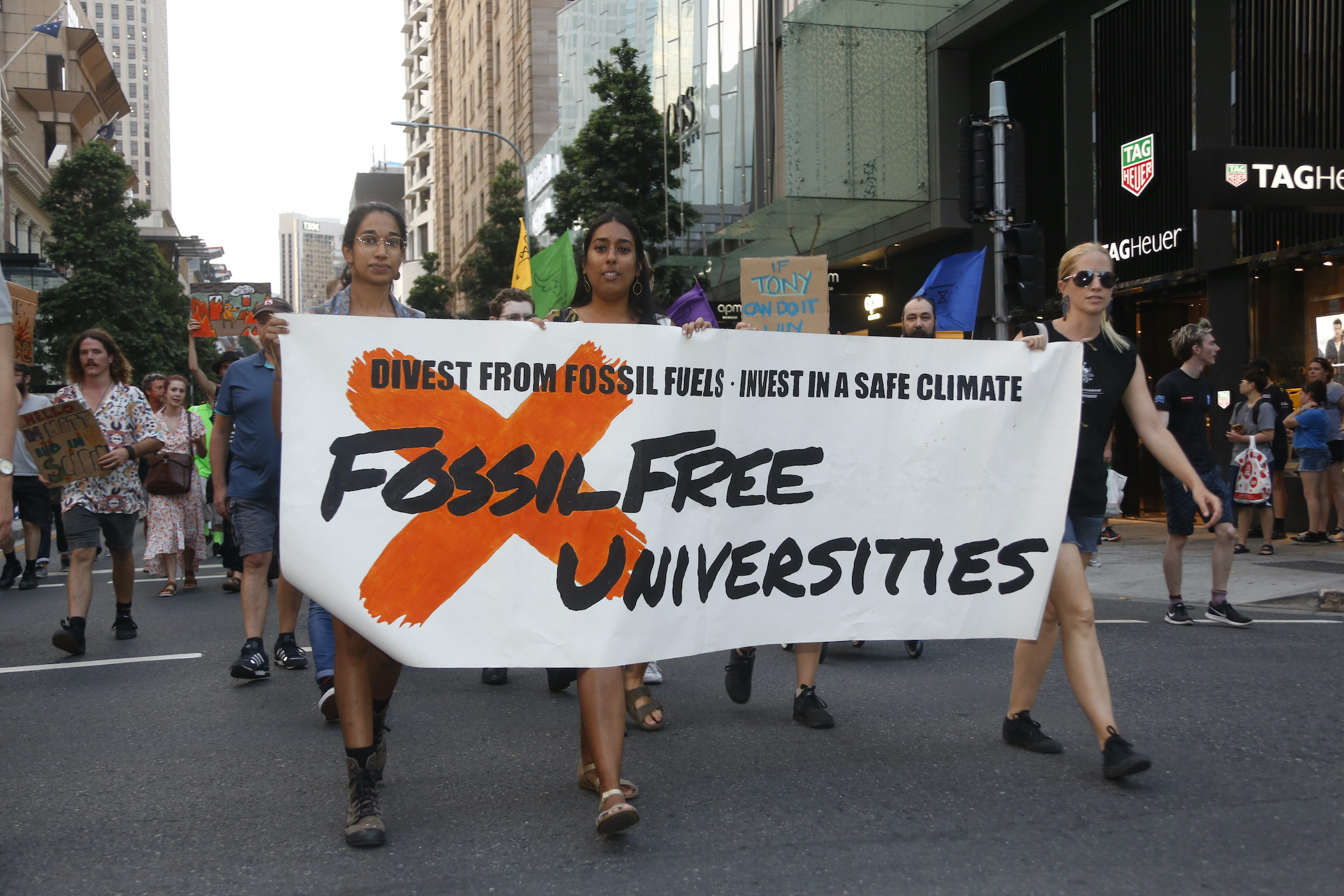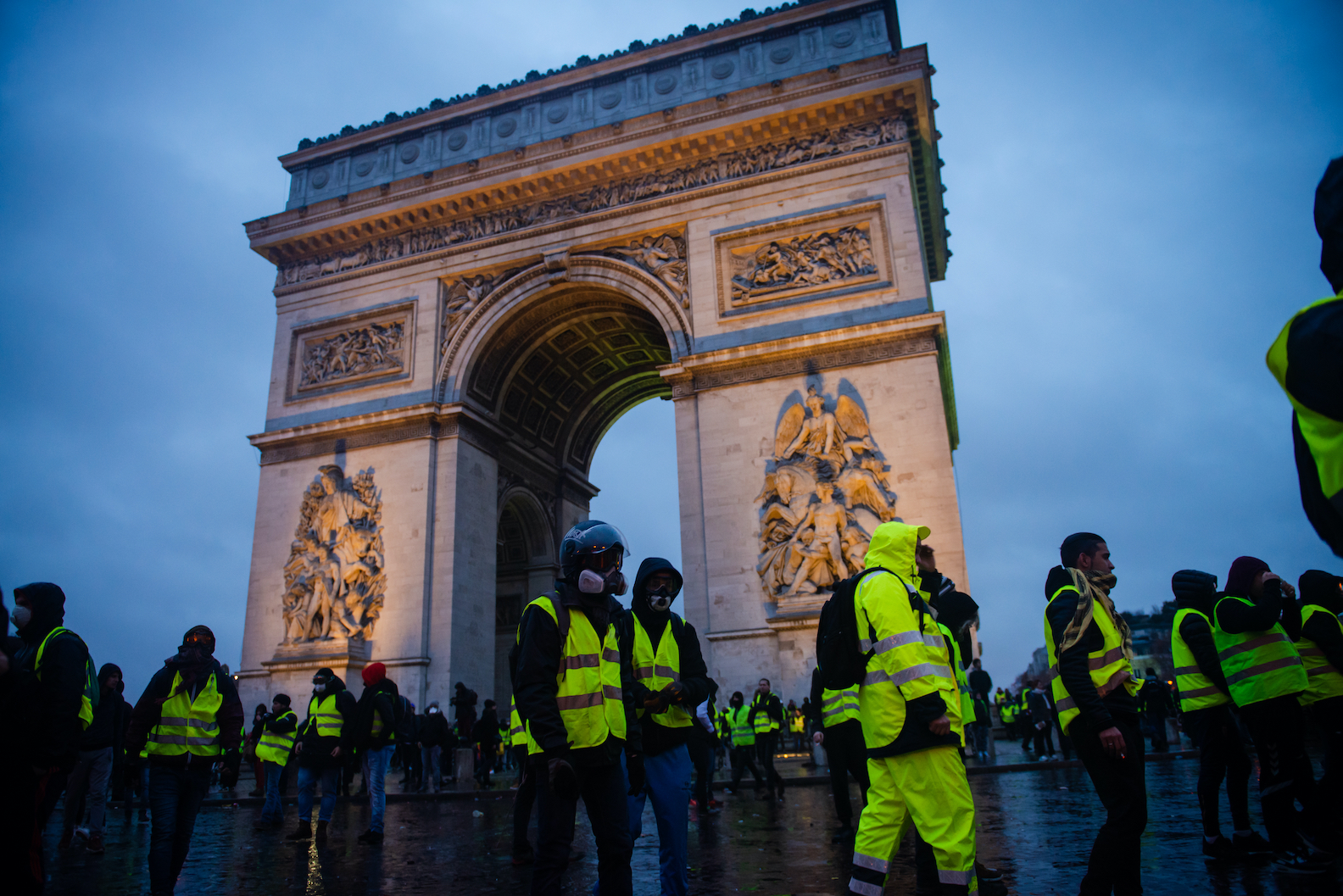It’s that power that the divestment movement is meant to address. It’s not necessarily trying to just change the share price of a company; it’s much broader than that. And it’s meant to affect all parts of the system, not just companies that are listed on the stock market. If we actually legislated both the extraction of and use of fossil fuels, that would affect every fossil fuel company in the world, not just those that are listed on the stock market.
Fossil fuel divestment and the theory of change
Senior Research Associate
- According to the theory of change behind divestment from fossil fuels, societies won’t create regulations if they don’t think something is wrong.
- By publicly stigmatising fossil fuel companies, divestment makes it easier to pass legislation that affects all fossil fuel companies, not just those listed on the stock market.
- We can’t address climate change without addressing income and wealth inequality as well.
A theory of change
When most people think about divestment from fossil fuels, they think about selling the shares in companies that are listed on the stock market in the fossil fuel sector. Often there’s a list of 200 specific companies that you’re not supposed to invest in. For a lot of people, that’s the definition of divestment. Others view it a bit more broadly, and they think you should divest from all fossil fuel assets, including all parts of the fossil fuel investment chain: upstream, midstream, downstream, pipelines, everything. That’s the comprehensive view.
But it’s also important to note a theory of change that’s behind divestment for a lot of people in this area. The theory of change for divestment is that we don’t tend to legislate things appropriately unless we view them as wrong. Societies don’t tend to pass legislation or create regulations if they don’t think that something needs to change significantly.
Building a moral case
In a way, the divestment movement’s focus on stigmatising fossil fuel companies makes it easier to legislate and regulate these companies. You’re changing public perception of the industry so that politicians can do what’s necessary to actually curtail the production or the extraction of fossil fuels. Instead of trying to directly affect companies by selling their shares, it’s much more about washing your hands of the industry. You are creating a moral case for doing something to wind down the fossil fuel industry, which otherwise has great lobbying power and influence over government legislation, and currently enjoys a lot of subsidies.

Alex Bee
Stigmatisation and debt
Anybody can divest from fossil fuels if they happen to have investments. That’s not the whole world; a lot of people in the world do not have any financial assets whatsoever. But in wealthy countries, anyone from individuals to institutions can divest from fossil fuels. It can be an individual action or a much larger action. However, it helps if you are a brand-name institution or a brand-name individual, like a movie star, because then it’s likely to generate the headlines that are key to stigmatisation.
But if you’re trying to actually affect these companies directly through your divestment, it is important to do it across all asset classes. That is especially true when it comes to debt, because debt accounts for about 90% of new external capital flowing into fossil fuels. If you want to cut off the financing for fossil fuels, you need to focus quite narrowly on bonds. A company borrows money by selling bonds; when you buy a bond, you’re effectively lending money to the company. The focus should also be on banks, because banks do direct lending to fossil fuels. They’re the major lenders to fossil fuels, and they also underwrite the bonds that we purchase that also contribute new capital to fossil fuel expansion.
How to organise divestment
Divestment movements don’t build themselves – at Cambridge, it was definitely the students and staff who pushed for it, and there was also a sympathetic administration that took the concerns of that group seriously. But very rarely does divestment come about without that kind of push from students and staff.
If you want to divest, it’s actually pretty easy to do so. Usually you invest through a fund manager anyway, and you can just tell that fund manager what to do. Just say, ‘I don’t want to own anything to do with fossil fuels anymore’, and they are supposed to carry that out for you. It doesn’t tend to cost more. If you have the right fund manager and they can find the right products, it can be just as affordable to divest as to have a regular portfolio, so it shouldn’t be that complicated.
Understanding the companies in your portfolio
If you own things directly, you do then have to look at certain methodologies. For example, you want to look at the GICS classification of your companies. That sounds a bit ridiculous, but you have to figure out what is the categorisation of these companies that are listed on the stock market and that issue bonds, so you can make sure that you’re capturing all of the fossil fuel companies in your portfolio.
The GICS classification will not necessarily cover all mining companies that mine coal and so on. If you actually own these things yourself and have to decide how to go about divesting, then you do have to think carefully about which companies you exclude and which ones you don’t. But that said, on the public equity side, it doesn’t really matter so much whether you catch every last bit, because it’s really about that symbolic impact of the announcement to divest. You have to make a big deal of the announcement.
The trouble with transparency
It’s not always clear to an investor which companies are doing what. There are a lot of layers of transparency that are missing. But given the nature of our system to date – which is not fit for purpose in the century that we’re living in – most companies are doing something that most of us would object to. Let’s be honest; they’re either contributing to climate change or they aren’t paying their workers very well, which contributes to income inequality, or they are engaged in human rights abuses through their supply chains. It’d be very hard to come up with a list of genuinely ethical companies that are large and investable for the average person. So that’s a big issue we have to think through.
That’s why I’ve turned away from what I used to call positive investment to really look at these harms. How do we mitigate these harms as much as possible? Because if you leave those in place, you can try to do as many good things as possible, but it’s not enough. We have to actually mitigate these harms and risks in the real world and through our investments. And we do have the power to do that. It’s not about trying to find the right “good” companies to invest in, although that’s part of the picture. It really is: how do we have a laser focus on doing things like preventing the construction of new fossil fuel infrastructure or exploring for new fossil fuels? That needs to stop now.
The impact of Cambridge’s divestment
With its central endowment and all 31 colleges, the University of Cambridge has the largest university endowment in Europe, but even that is a drop in the bucket compared to the whole financial system. The very largest asset owners tend to be pension funds and sovereign wealth funds. Obviously, if they divest, it has much more of a direct impact because in asset classes other than public equity, they’re actually moving money away from bad things.
With Cambridge, the impact of divesting from fossil fuels is much more about the symbolic effect of one of the oldest universities in the world taking a stand and making a big fuss about it. If a very well-respected institution doesn’t want to have anything to do with a company, a sector or a person, that is stigmatising. Humans are a social species; that kind of opprobrium directed at a person or a company is a big deal to us. We don’t like it. And that’s what tends to allow for a social discourse shift. That’s why it’s extra important to have a big push on the announcement side, so that everyone is aware that that stigmatisation has happened.
Institutional responsibility
An institution like a university has responsibilities across a whole number of different metrics. We are a major research institution; we do a lot of teaching as well; we play a role in the financial system directly, but also symbolically. The question of fossil fuels is an emergency, so we need to be doing things across all of those dimensions as much as is humanly possible. We will be judged in the future if we don’t, and we should be judged if we don’t do everything that we possibly can, in as many ways as possible, to address this issue.
That might involve doing things differently, both on the research side and on the investment side. It probably involves a much more multidisciplinary and intersectional way of working that doesn’t just take into account the technical advances and the retrofits that are required, but also the social responses to all of that as well.
Sometimes you end up with technocratic solutions that don’t work very well on the ground, because humans react in certain ways when they perceive that there is, say, a justice issue that needs to be addressed. You end up with a situation like the gilets jaunes in France as a reaction to an attempt to price carbon, essentially. And that really arose in part because of inequality. You have to take into account the effects on particular populations when you bring in carbon pricing like that.

William Lounsbury
Inequality and climate change
Here’s an example that people don’t usually know about: in British Columbia, Canada, they brought in a carbon dividend more than a dozen years ago. They disproportionately returned money to people on the lower end of the income scale, and they made it very salient by having it arrive in your bank account. No one felt left behind, particularly because of that carbon dividend. Instead, support for it went up – very much the opposite of the gilets jaunes' reaction. And that’s because the policy design took into account social factors that really do need to be attended to.
I don’t think you can address climate change without taking into account inequality. You’re unlikely to get the political social support for climate change measures that you need if there are large divisions or a lack of education or understanding in various segments of the population. Income inequality, wealth inequality and climate change all need to be looked at in the round. And that’s very much an interdisciplinary project.
Discover more about
fossil fuel divestment
Quigley, E., Budgen, E., & Odgers, A. (2020, October 1). Divestment: Advantages and Disadvantages for the University of Cambridge. Centre for the Study of Existential Risk.
Chambers, D., Dimson, E., & Quigley, E. (2020). To Divest or to Engage? A Case Study of Investor Responses to Climate Activism. The Journal of Investing, 29(2), 10–20.